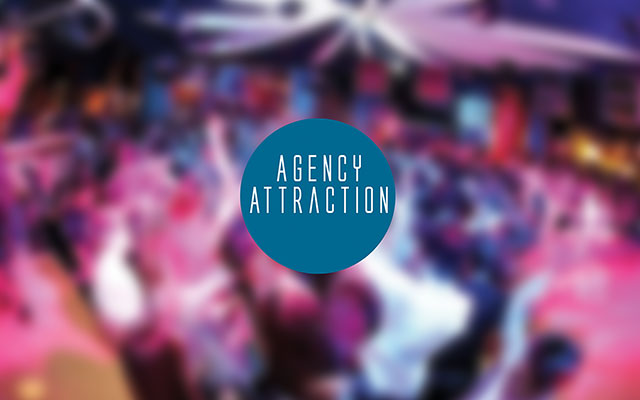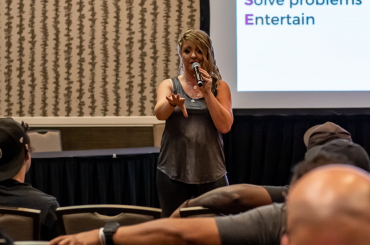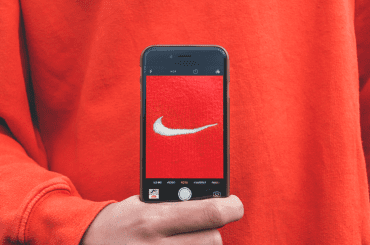Any new club DJ looking to make it as an artist and/or larger-venue performer has to put in a lot of work before he or she can get an agent. Essentially, DJs need to build an impressive profile before an agent will become interested in working with them.
DJ Times caught up with Sharron Elkabas, Co-Founder and Agency Director of MN2S in London, to discuss the subject. Drawing on his 20 years in the business, Elkabas tells us how it’s done with a Top-10 checklist.
UP-TO-DATE PRESS KIT
A must-have for all DJ/artists. The press kit is you in a package; it’s your brand, your image, your sound, your key to grabbing the attention of agents and vital members of the music industry. Whether it be physical or digital (EPK), there are some key techniques that will ensure that yours stands out amongst the countless others.
Firstly, you need a strong, well-written biography. Your bio will need to reflect your backstory and where you’re at as an artist; this will help others gauge an idea of what level artist you are and where you sit in the market. However, make sure you don’t ramble on—300-350 words should suffice. It’s also a good idea to have an experienced writer type up your bio—this way you can be sure that it will look and read professionally.
Make sure you have high-quality recordings of your most recent productions and DJ mixes. First impressions count! You want your listeners to hear you at your best and, in most cases, you have around 30 seconds to impress.
Image can be almost as important as the music, so make sure you include a good photo of yourself. The photo must be high-resolution, so it can be reproduced in magazines, websites and other areas of press and promotion. Also again, using a pro photographer will add that professional touch. If you have an artist logo, include that as well. Having a logo can further define you as an artist and aid marketing your “brand.”
Include any recent, upcoming show dates and also any recent press you have, if this applies. You want to show that you are a busy, in-demand artist. If you can prove that you have a busy schedule, then agents can feel confident that they can secure you gigs and that you are a worthwhile investment.
SOCIAL MEDIA
It goes without saying that in the 21st Century, social media has become a vital platform for promoting music and connecting with fans. It’s also become one of the first places agents look when researching potential clients and they will judge you on where you’re at as an artist by looking at your social network.
It’s important to cover all the bases and sign onto all the networks: Facebook, Twitter, Soundcloud, Youtube, Instagram, and Mixcloud are all valuable platforms for promoting. The more networks you can showcase yourself on the better.
Make sure you keep your networks up to date. Again, you want to show that you are a busy artist; you want to let everyone know that you’ve got things going on. If you’ve got “gaps” in your timeline, agents might get concerned about how in-demand you are.
Having a strong following will reassure agents that you are a good “investment.” Followers prove that people are interested in your sound and want to see you perform. It’s always advisable to grow your followers organically, as this will look more believable. If you have thousands of followers, but little or no engagement with your content, then people are going to get suspicious and most likely be put off.
Post great content at the right time and aim to grab people’s attention: exclusive mixes, event photos, event flyers, press and so on. Until you can afford to hire a social-media expert, become one yourself.
RELEASES
There has always been a strong correlation between having releases in the market and bookings, particularly if you’re a DJ. Learn to produce tracks and offer free remixes to labels. Put together exciting relevant bootlegs and send them to DJs. If you’re being listed in various charts, have DJ support and radio play, then that will greatly benefit your chances of getting bookings. If you put out regular music (even if it’s directly to your Soundcloud page), this can be a solid way to build a loyal following, as well as generating content for social media and activity to talk about to press and promoters.
PUBLIC RELATIONS
Despite what some might say, “old-fashioned” PR and marketing still play a big part in getting the most out of your releases and can vastly spread your outreach. A good PR campaign will convey your music’s message, create a strong public image, generate visibility in the market and build media relationships. They are your “foot in the door.”
However, it’s no good hiring a PR agency if it has nothing to promote. You need to be active, releasing music, gaining support and securing gigs. To begin with, you need to be your own PR, engaging with tastemaker blogs and any influential media that will give you the time of day and help to promote your name and music.
LABEL & MANAGEMENT
Releasing on the right labels is important. Appearing on the right tastemaker label shows that the right people are interested in your sound and it’s worth investing in. Also in most cases, releases from top labels receive a lot of chart coverage and radio plays and your tracks will reach the right ears.
Be aware, however, that it can take a lot of time and effort to get your music noticed and to get it signed to these labels. Be positive and persistent, and always make sure your music is relevant to the label you are pitching it to.
Once you have activity and interest in your music, you should look for a manager. It can be very beneficial for your career if you have someone “steering the ship,” seeking out opportunities and putting you forward for opportunities that will advance your career. Others will take you more seriously if you have a manager representing your interests. Also a manager works on your behalf; if they’re investing their time into you, then others might see you as a worthwhile artist.
HAVING GIGS ALREADY
One of the first things an agent will look at is how busy your schedule is. An empty diary is not going to fill agents with a lot of confidence. They will know that there will be more work involved to get things moving; whereas, having a number of dates in the diary will make you look like a more attractive proposition with demand already in the market. Having dates with notable venues, events or promoters will further boost your credibility and give an agent a strong starting point.
However, promoters won’t just hand out gigs – you need to immerse yourself in the club scene. Go to every night you can, introduce yourself to the promoter and stick a mix CD in his hand. Make sure he sees you every time the night is on and become a well-known face. There is no substitute for this personal effort and this is what will open doors for you to build up regular gigs.
WHAT MAKES YOU STAND OUT
Consider what makes you stand out from the crowd. There are countless DJs and performers in the scene and the competition is tough. Promoters are always looking out for something unique to add to their night and if you’ve got a prominent image then you’re bound to attract attention.
Knowing your target market is greatly beneficial. Good market knowledge will help you tailor yourself to meet the market’s needs. Also, especially with dance music, trends come and go quickly. By keeping on top of what’s going on in the market, you can stay on-point and avoid the risk of becoming “outdated” and undesirable.
REFERRALS
Another great way to get an agent is by having referrals, either from another artist on the agency or by having a manager refer you to the agent. Part of the music industry is about contacts—the more people you know, the more help you can get. Also, having a referral from an artist or manager offers an unbiased view of yourself as an artist. While it’s one thing to credit yourself, agents are going to look to see what others have to say about you.
BE PATIENT
Though the music industry moves fast at times, some things don’t happen overnight. Going through the steps above takes time. It takes time to build a portfolio. It takes time to get the word out and build a following. You can’t expect to burst onto the scene and have offers left, right and center.
Don’t rush into signing with an agency for the sake of having a booking agent. There are numerous agencies out there that cater for all manner of needs and markets; you want to be sure that the agency is right for you.
BE CONSIDERATE
Finally, a key point that at times can be forgotten… be considerate. Show the utmost respect to venue bookers, stage crews, sound guys, the whole crew. Keep in mind that these guys work as hard as you do and without them you wouldn’t have a show. Consider showing appreciation by buying them a drink or being courteous, little tokens of gratitude can go a long way. If you go around upsetting everyone and making their already stressful night even more stressful, then there’s a high chance you won’t be invited back.
Reputation matters in the music industry and word gets around. Earn yourself a bad one and you may struggle on the road ahead.








